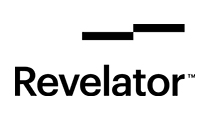This website uses cookies so that we can provide you with the best user experience possible. Cookie information is stored in your browser and performs functions such as recognising you when you return to our website and helping our team to understand which sections of the website you find most interesting and useful.
Business News Digital Labels & Publishers
Music industry still tackling its new data challenges, says Revelator chief
By Chris Cooke | Published on Friday 4 December 2015

The music industry is still very much tackling its streaming-era data challenges, according to Bruno Guez, founder of the previously reported music data start-up Revelator, who discusses his new business, the music industry’s data dilemmas and the much talked-up blockchain in a new interview that appears in the next edition of the CMU Trends Report.
“I think there are very few that have the technology stack to deal with it”, Guez tells CMU, when asked whether record companies, music publishers and collecting societies were now getting on top of the flood of usage data that comes in from the streaming platforms each month.
“Some of our customers process more than 300 million lines a month”, he reveals. “A good independent label will process something between 30-50 million lines of data a month, a large distributor will process around 300-500 million lines, a major can process a billion lines a day. We’re dealing with big data and none of the companies are used to receiving 500 reports a month, and they don’t have the ‘parsers’ or the cloud solution to ingest them efficiently”.
“It could take you two to four hours to process the data”, he goes on. “A large YouTube or Spotify file can’t open in Excel, as it doesn’t support a file bigger than 1GB, and a Spotify file can easily be 4.5GB, YouTube could have 4 million lines in a file, but you can’t even open it! So I don’t think many labels, publishers or rights societies have yet found a way of managing this problem efficiently. So they outsource it, or are interested in Revelator’s solution as we are built for scale and we really simplify the process”.
Aside from having a system capable of processing the quantities of data the streaming sector now dumps on rights owners each month, there is also the much previously discussed issue of copyright ownership information, and the lack of a central database that tells services who controls and benefits from each song and recording copyright in each territory. There are plenty of standalone databases that have some of that data, some of which are publicly accessible, but there is no one-stop shop. The publishing sector’s Global Repertoire Database project collapsed, and even that would only have covered song copyrights.
Everyone agrees better copyright ownership data is needed, but will that come from within or outside the industry? “I do think that a start-up is a lot more likely to crack this than the industry itself”, Guez says. “A start-up is providing a solution to a problem, I don’t think the industry is necessarily looking to solve the problem. The start-up is looking to achieve a specific ‘use case’ and they’ll be very resourceful in scraping the data together, tapping into different APIs and everything they need to prove their use case. There is no reason the industry would do that, it benefits the copyright beneficiaries, but not necessarily the industry”.
He goes on: “A start-up would do it as the beneficiaries would be their customers essentially. A start-up has an inherent reason for being a catalyst of change, they don’t necessarily care to be governed by industry politics. I think the specific ownership and beneficiaries info will ultimately always need to be kept private – I don’t think that information should be public – but the central database can be a way of contacting the artist’s representative. I do think there should be say a Yellow Pages of all the songwriters, producers, artists and so on”.
You will be able to read the full interview with Guez in the final CMU Trends Report of 2015, out soon, which also include features on data and the blockchain, the recent debates around the making available right, and the five digital challenges the music industry faces in 2016. To receive the Trends Report as it is published you need to become a premium subscriber for just £5 a month. Click here to get sorted.





